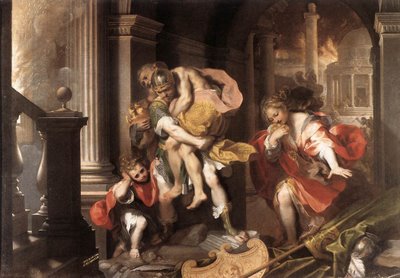The Aeneid

"THE EMPEROR WAS in the market for a blockbuster epic. It would be a gripping tale of conquest in fulfillment of a glorious destiny, and he would be its hero.
Rome was at long last entering a period of peace and prosperity after decades of political tumult and civil strife, and the strongman formerly known as Octavian calculated that the time was ripe for a literary masterwork that would herald a new world order and proclaim that it was all in keeping with a divine plan. The Greeks had their Homer; now it was Rome's turn.
But "The Aeneid," the magnum opus that Publius Vergilius Maro left not quite finished when he died in 19 BC, turned out to be something rather different than Augustus had in mind -- and a lot more than he bargained for. No boilerplate martial saga or dynastic docudrama, the poem was instead a vast mythological narrative about the founding of Roman civilization, boldly tracing the origins of Latin culture back to the crucible of Troy. And the starring role didn't go to Rome's current supreme ruler; the leading man was the legendary Trojan warrior Aeneas, a favorite son of Venus who had taken to sea with his vanquished legions as their citadel was razed to ashes, in search of a new dominion to call home..."
<< Home